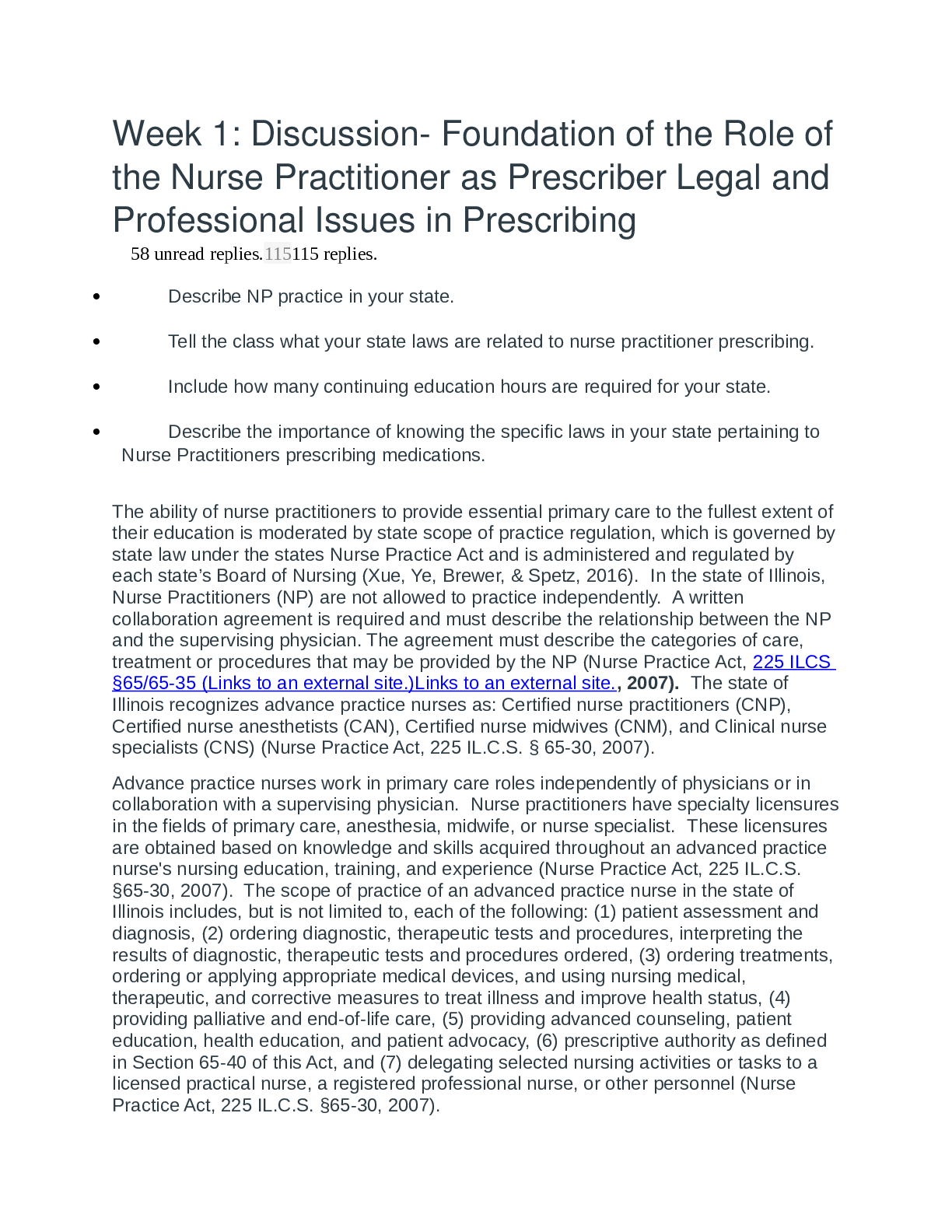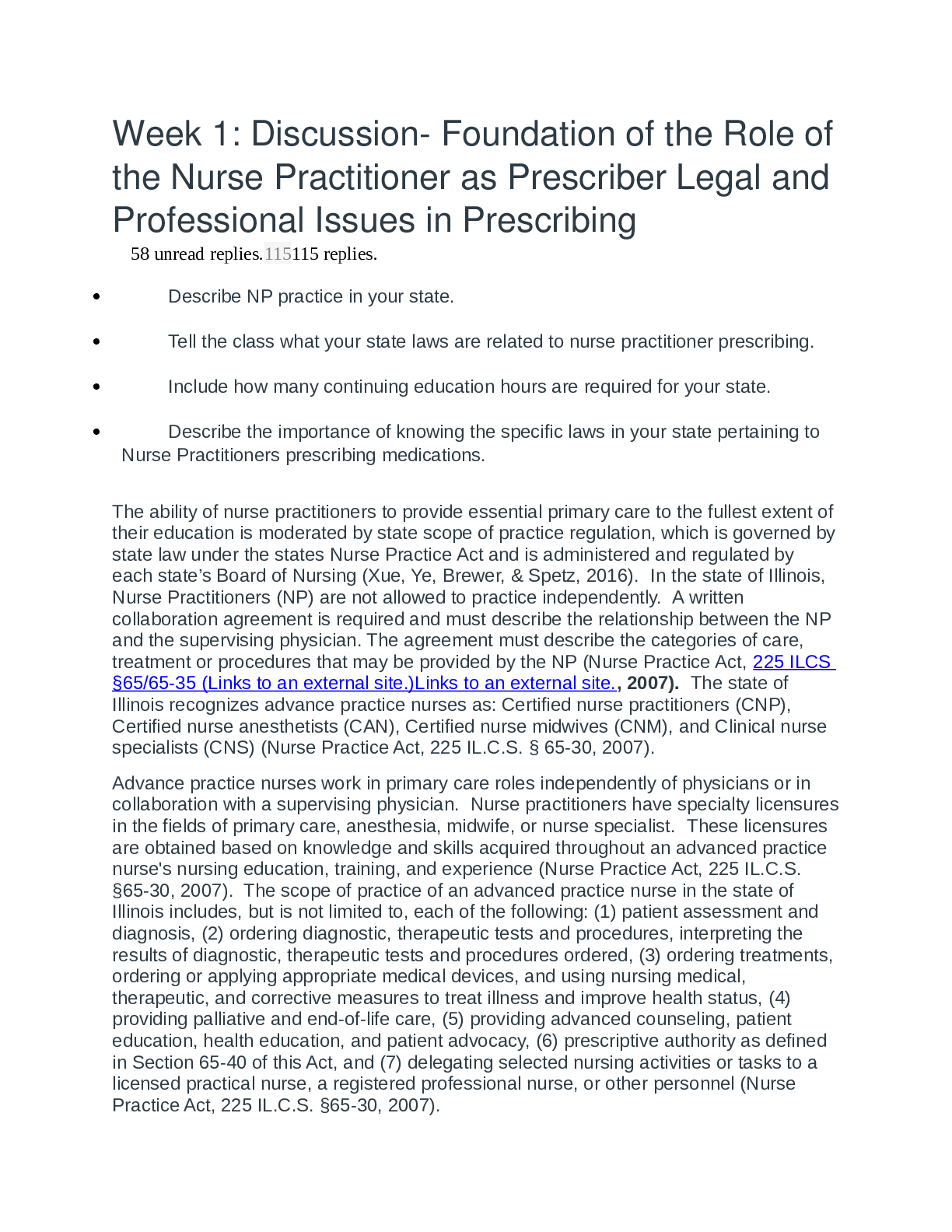Week 1: Discussion Foundation of the Role of
the Nurse Practitioner as Prescriber Legal and
Professional Issues in Prescribing
5858 unread replies.115115 replies.
Describe NP practice in your state.
Tell the class what your state laws are related to nurse practitioner prescribing.
Include how many continuing education hours are required for your state.
Describe the importance of knowing the specific laws in your state pertaining to
Nurse Practitioners prescribing medications.
The ability of nurse practitioners to provide essential primary care to the fullest extent of
their education is moderated by state scope of practice regulation, which is governed by
state law under the states Nurse Practice Act and is administered and regulated by
each state’s Board of Nursing (Xue, Ye, Brewer, & Spetz, 2016). In the state of Illinois,
Nurse Practitioners (NP) are not allowed to practice independently. A written
collaboration agreement is required and must describe the relationship between the NP
and the supervising physician. The agreement must describe the categories of care,
treatment or procedures that may be provided by the NP (Nurse Practice Act, 225 ILCS
§65/65-35 (Links to an external site.)Links to an external site., 2007). The state of
Illinois recognizes advance practice nurses as: Certified nurse practitioners (CNP),
Certified nurse anesthetists (CAN), Certified nurse midwives (CNM), and Clinical nurse
specialists (CNS) (Nurse Practice Act, 225 IL.C.S. § 65-30, 2007).
Advance practice nurses work in primary care roles independently of physicians or in
collaboration with a supervising physician. Nurse practitioners have specialty licensures
in the fields of primary care, anesthesia, midwife, or nurse specialist. These licensures
are obtained based on knowledge and skills acquired throughout an advanced practice
nurse's nursing education, training, and experience (Nurse Practice Act, 225 IL.C.S.
§65-30, 2007). The scope of practice of an advanced practice nurse in the state of
Illinois includes, but is not limited to, each of the following: (1) patient assessment and
diagnosis, (2) ordering diagnostic, therapeutic tests and procedures, interpreting the
results of diagnostic, therapeutic tests and procedures ordered, (3) ordering treatments,
ordering or applying appropriate medical devices, and using nursing medical,
therapeutic, and corrective measures to treat illness and improve health status, (4)
providing palliative and end-of-life care, (5) providing advanced counseling, patient
education, health education, and patient advocacy, (6) prescriptive authority as defined
in Section 65-40 of this Act, and (7) delegating selected nursing activities or tasks to a
licensed practical nurse, a registered professional nurse, or other personnel (Nurse
Practice Act, 225 IL.C.S. §65-30, 2007).
Read More


